Steakhouses are a great place to enjoy a perfect meal and connect with friends or family. But let’s face it, dining out can come with its own set of rules. Whether you're a regular or it's your first time, knowing the right steakhouse etiquette can make a big difference. We’ve all seen those awkward moments when someone commits a dining faux pas. Don’t worry, you’re not alone.
Picture this: you’re at a fancy steakhouse, the ambiance is just right, and the smell of grilled meat fills the air. You want to fit in, enjoy your meal, and leave a great impression. That's where understanding steakhouse etiquette comes into play. It's not just about knowing which fork to use; it’s about respecting the atmosphere and the people around you. Small mistakes can turn a great dining experience into an awkward one.
So, what are these common mistakes, and how can you avoid them? This article is here to guide you through the do’s and don’ts of steakhouse dining. By the end, you’ll be ready to enjoy your meal confidently and make great memories without any dining mishaps.
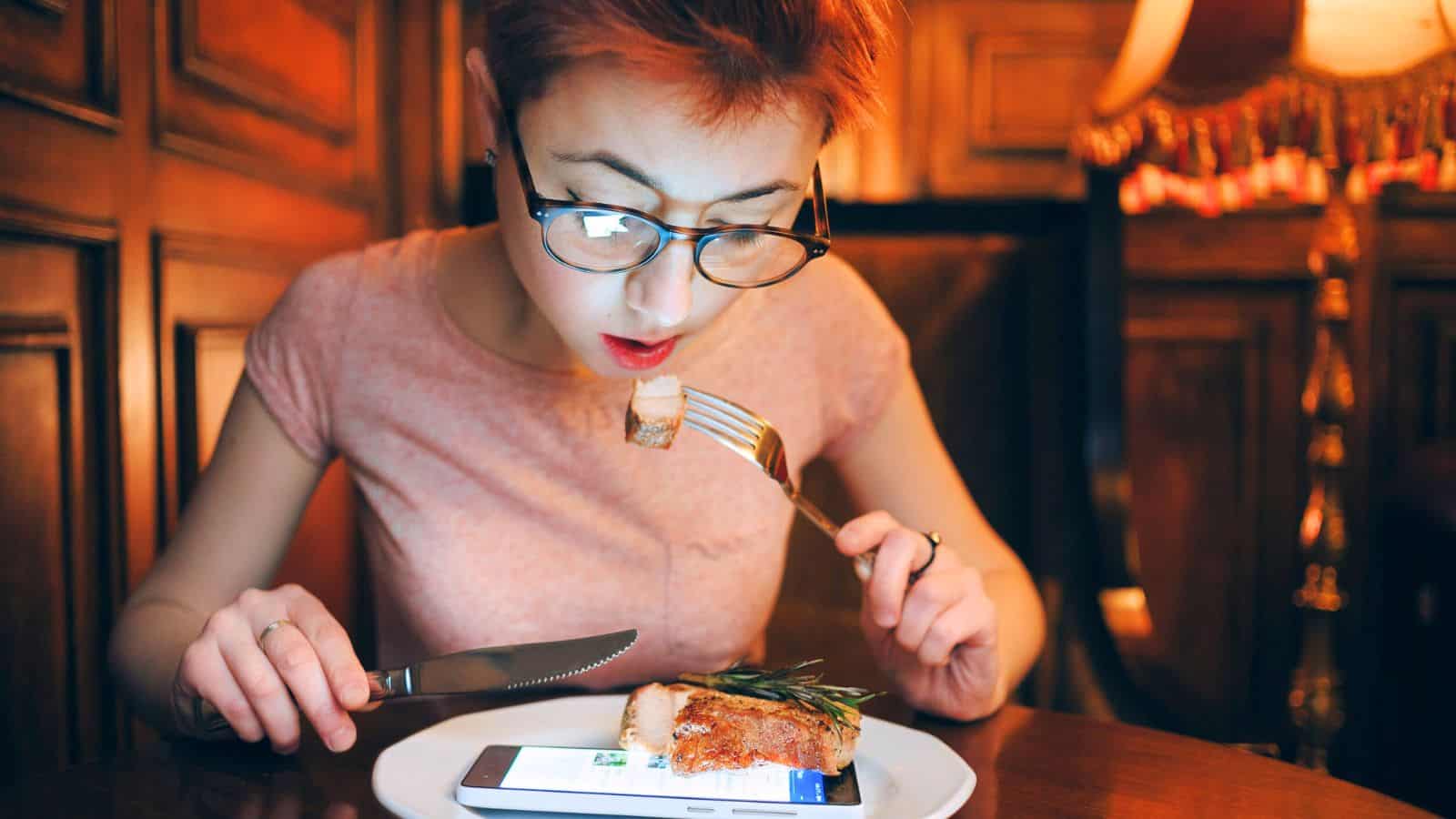
Using the Wrong Cutlery

Proper use of cutlery is an important aspect of steakhouse etiquette. Using the wrong utensils can be seen as a lack of dining knowledge and can make the meal awkward. Typically, a steak knife is given to you for cutting your steak, and it's important to use it correctly. Forks should be held in the left hand and knives in the right. Using the correct cutlery helps in efficiently cutting and enjoying your steak. Additionally, placing your utensils correctly after finishing a course signals to the waitstaff that you are done, guaranteeing smooth service throughout your meal.
Ordering Well-Done Steak
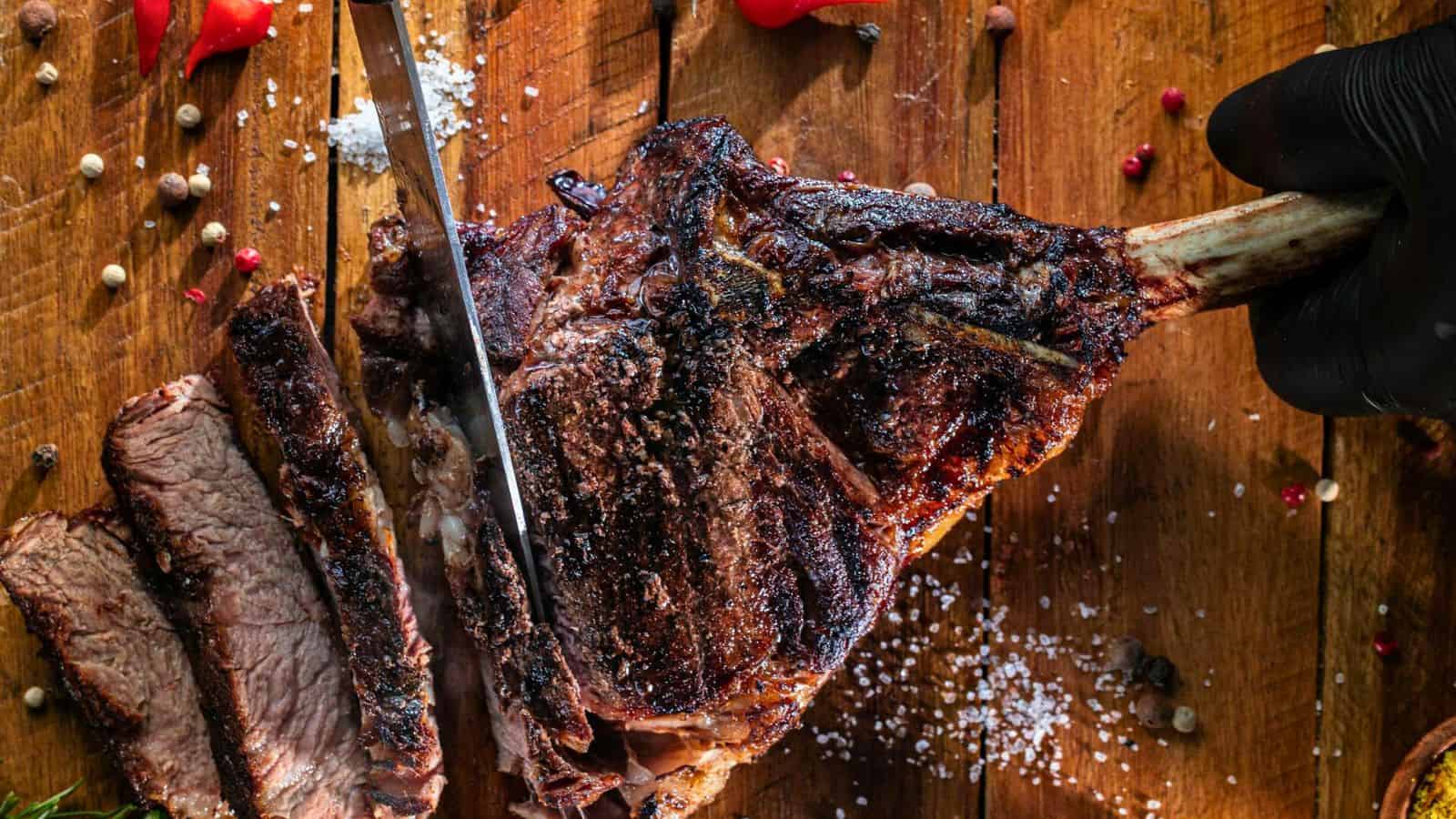
Ordering a well-done steak is often frowned upon by steak enthusiasts and chefs. Cooking a steak to well-done can result in a tougher, less flavorful piece of meat. Steakhouses take pride in serving high-quality cuts, and cooking them to well-done can be seen as diminishing their quality. If you're unsure about how you like your steak, consider trying it medium or medium-rare. These levels of doneness preserve the meat's tenderness and flavor. Trusting the chef's expertise can lead to a more enjoyable dining experience and a better appreciation of the steak.
Eating Too Quickly
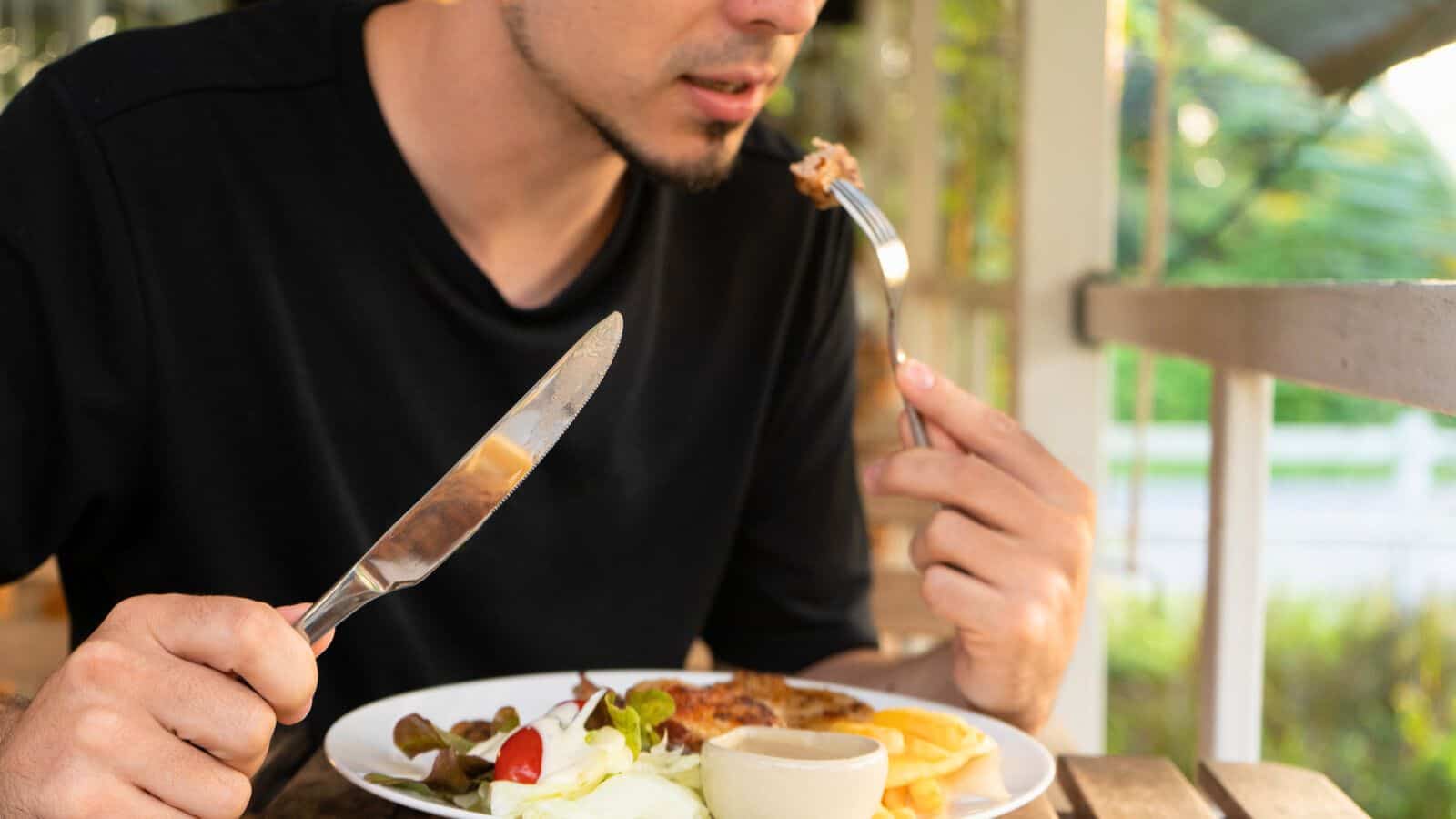
Consuming your meal too rapidly can be seen as impolite and may detract from the dining experience. Steakhouses are places where meals are meant to be enjoyed leisurely. Eating slowly allows you to fully appreciate the flavors and textures of the food. It also gives you an opportunity to engage in meaningful conversation with your dining companions. Taking your time with each bite can enhance your overall experience and show respect for the effort put into preparing the meal. Moreover, eating slowly aids in better digestion and can make the meal more satisfying.
Talking Loudly

Maintaining a moderate volume while speaking is crucial in a steakhouse setting. Speaking too loudly can disturb other diners and detract from the overall ambiance. Restaurants often strive to create a pleasant atmosphere where guests can enjoy their meals and conversations without unnecessary noise. It's important to be mindful of your voice level and to keep conversations at a reasonable volume. If you need to discuss something private or sensitive, consider stepping outside or lowering your voice. Respecting the noise level contributes to a more pleasant dining experience for everyone present.
Not Tipping Appropriately

Leaving a proper tip is a significant aspect of dining etiquette, especially in a steakhouse where service is often a crucial part of the experience. In many places, a tip of 15-20% of the total bill is standard for good service. Failing to tip appropriately can be seen as a sign of disrespect to the waitstaff, who rely on tips as a substantial part of their income. If the service was exceptional, consider tipping even more. Acknowledging the effort and care given by the staff not only shows appreciation but also contributes to a positive dining culture.
Improper Wine Pairing

Selecting a wine that doesn't complement your steak can affect the overall dining experience. Steakhouses often have extensive wine lists, and choosing the right wine can enhance the flavors of your meal. For example, a robust red wine like Cabernet Sauvignon or Merlot typically pairs well with steak. If you're unsure about which wine to choose, don't hesitate to ask the waitstaff or sommelier for recommendations. They can suggest wines that will complement your steak and elevate the dining experience. Proper wine pairing can make your meal more enjoyable and memorable.
Arriving Late

Punctuality is crucial when you have a reservation at a steakhouse. Arriving late can disrupt the restaurant's schedule and inconvenience both the staff and other guests. Most steakhouses operate on a tight reservation system, and a delay can cause a ripple effect, affecting the dining experience for others. If you anticipate being late, it's courteous to call ahead and inform the restaurant. This allows them to make necessary adjustments. Being on time shows respect for the establishment's time and effort in preparing for your visit, as well as consideration for fellow diners.
Ignoring Table Manners

Basic table manners are essential in any dining situation, particularly in a formal setting like a steakhouse. Chewing with your mouth open, talking with food in your mouth, or reaching across the table can be off-putting to others. Simple practices like using utensils correctly, placing your napkin on your lap, and waiting for everyone to be served before starting to eat show respect for your fellow diners. Good table manners help create a pleasant and respectful dining environment, making the experience more enjoyable for everyone. Being mindful of your behavior at the table reflects well on you and enhances the meal.
Sending Back Food Without Good Reason
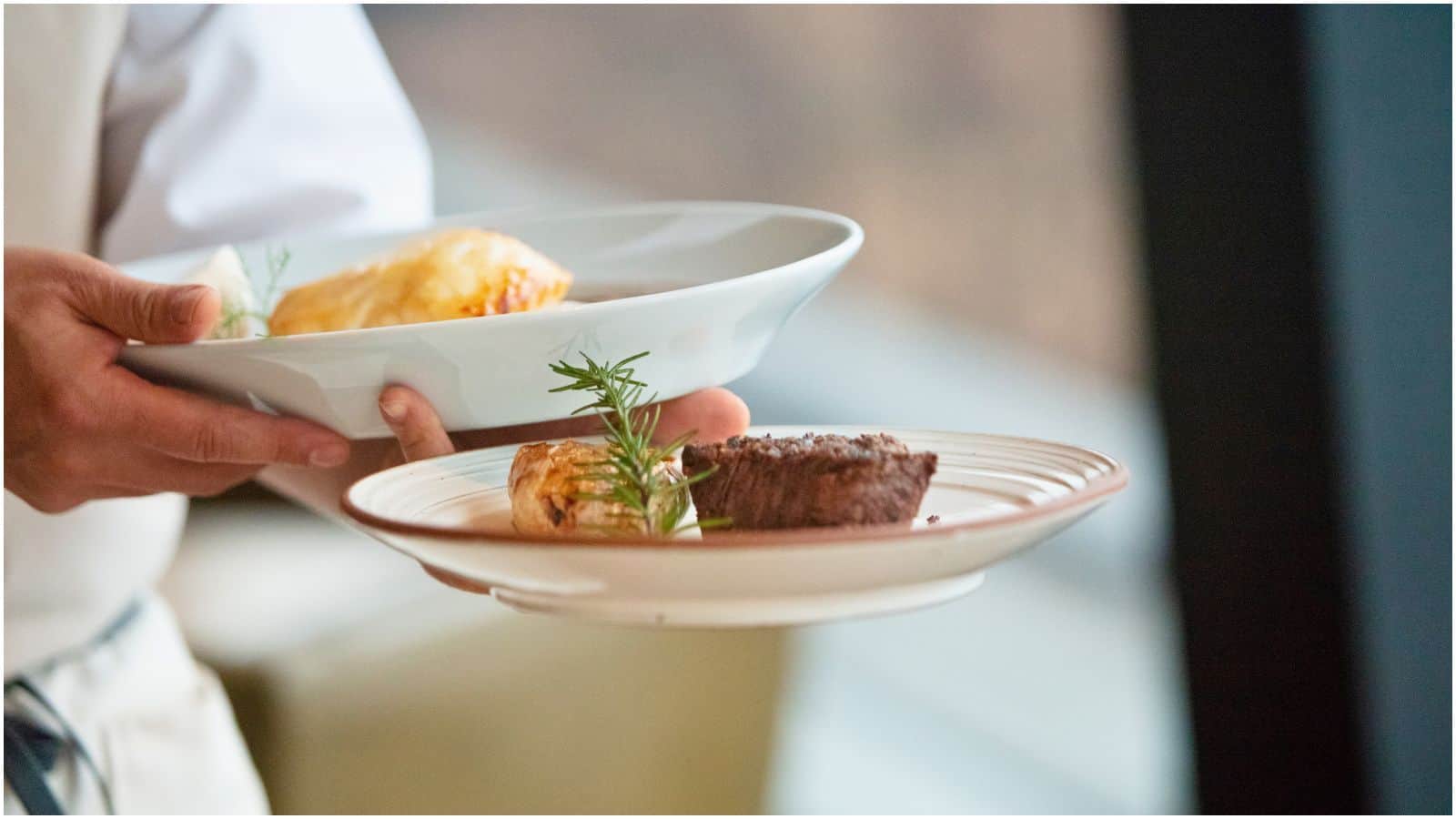
Returning your steak or any other dish to the kitchen without a valid reason can be seen as wasteful and disrespectful to the chef and staff. If there's a genuine issue with your meal, such as it being undercooked or not what you ordered, politely inform the waitstaff. However, sending back food simply because it doesn't meet personal preferences, especially if it was ordered correctly, can disrupt the kitchen and waste resources. Communicating your preferences clearly when ordering can help avoid unnecessary returns and contribute to a smoother dining experience.
Talking About the Price

Discussing the cost of the meal in front of guests can be considered impolite and can make others uncomfortable. Conversations about money, especially in a social dining setting, can detract from the enjoyment of the meal and create an awkward atmosphere. Focus on the quality of the food, the company, and the experience instead. If you need to discuss the bill, do so discreetly or wait until a more appropriate time. Keeping the conversation pleasant and light-hearted contributes to a more enjoyable dining experience for everyone involved.
Using Your Phone at the Table

Constantly checking your phone or texting during a meal can be disruptive and rude to your dining companions. It detracts from the social aspect of dining and can make others feel undervalued. To show respect for those you're dining with, keep your phone on silent and avoid using it at the table. If you must take a call or respond to a message, excuse yourself and step away from the table. Being present and engaged in the conversation enhances everyone's dining experience and shows good manners.
Cutting All Your Steak at Once
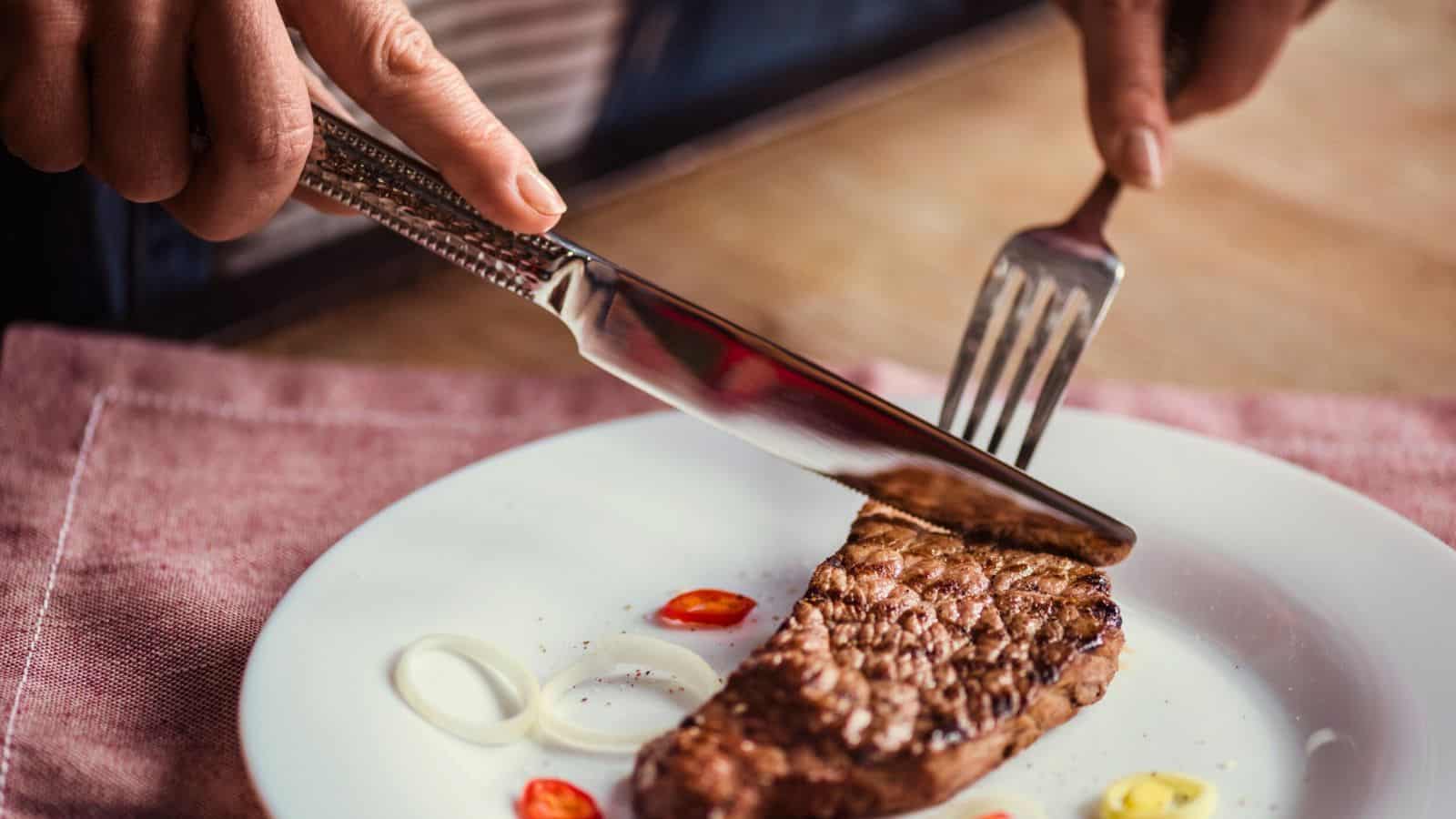
Cutting your entire steak into pieces before eating is generally considered poor etiquette. It can cause the meat to cool down faster and lose its juiciness. Instead, cut one piece at a time as you eat. This helps maintain the steak's temperature and guarantees each bite is as enjoyable as possible. Additionally, cutting one piece at a time allows you to focus on the texture and flavor of each bite, enhancing your dining experience. Properly pacing yourself while eating also shows a level of sophistication and respect for the meal.
Ignoring the Waitstaff

Being polite and attentive to the waitstaff is essential in any dining setting, especially in a steakhouse. Ignoring them or treating them poorly can create an uncomfortable atmosphere. It's important to acknowledge their presence, make eye contact, and say "please" and "thank you." Good communication with the waitstaff can enhance your dining experience, as they can suggest valuable recommendations and guarantee your needs are met. Remember, they are there to serve you and make your meal enjoyable, so treating them with respect and kindness is key.
Over-seasoning Your Steak
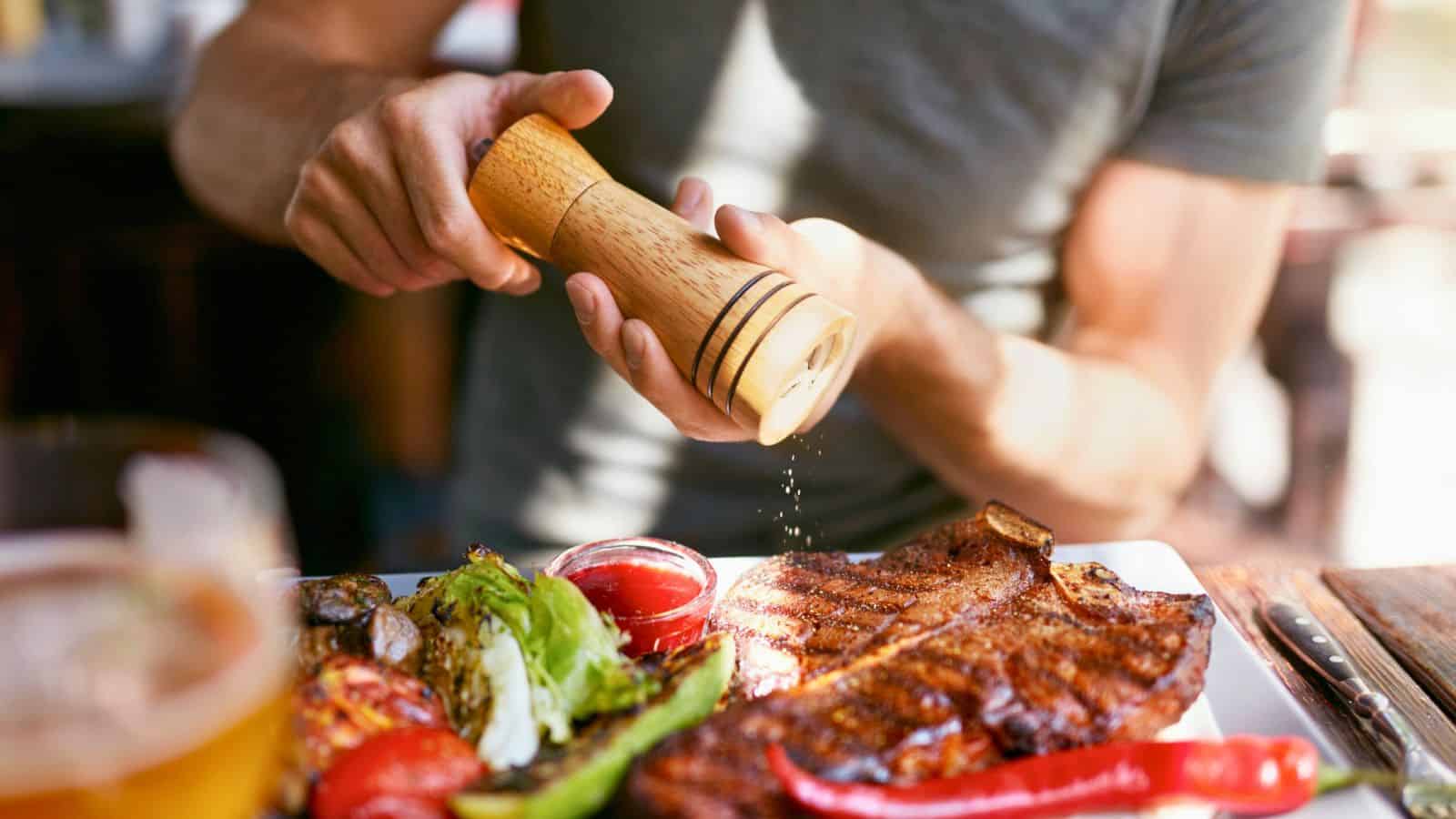
Adding too much salt, pepper, or other seasonings to your steak before tasting it can be seen as disrespectful to the chef's preparation. Steakhouses often pride themselves on the quality and flavor of their meat, which is carefully seasoned and cooked to perfection. By over-seasoning, you may overpower the natural taste of the steak. It's best to first taste the steak as it is served. If you feel it needs additional seasoning, add it sparingly. Trusting the chef's expertise in seasoning can lead to a more balanced and enjoyable meal.
Dressing Inappropriately

When dining at a steakhouse, it's important to adhere to the dress code. Wearing overly casual attire like flip-flops, shorts, or tank tops can be seen as disrespectful. Many steakhouses expect guests to dress in smart casual or business attire. This means opting for slacks, a button-down shirt, or a nice dress. Dressing appropriately shows respect for the establishment and other diners. It also enhances the dining experience by maintaining a certain level of decorum and ambiance. Always check the restaurant’s dress code guidelines beforehand to avoid any embarrassment.
Beef Up Your Etiquette

Mastering steakhouse etiquette can transform your dining experience from good to great. It’s not just about following rules; it’s about enhancing the meal and making everyone around you feel comfortable. When you know what to do and what to avoid, you can focus on the flavors, the conversations, and the great memories you're creating.
Remember, it’s the little things that count. Being mindful of how you interact with the staff, how you handle your utensils, and even how you order your steak can make all the difference. These small adjustments show respect for the restaurant and the people you're dining with, making the whole experience more enjoyable for everyone.
So next time you find yourself at a steakhouse, keep these tips in mind. You'll not only enjoy a perfect meal but also leave a lasting impression of confidence and class. Dining out should be a great experience, and with the right etiquette, you can make sure it always is. Happy dining!
Make Better Coffee by Avoiding These 10 Common Brewing Mistakes

Making a great cup of coffee seems simple, but there are common coffee brewing mistakes many people make. Even the most seasoned coffee drinkers can fall into these traps, leading to a less-than-perfect cup. From stale beans to the wrong water temperature, these mistakes can make a big difference in the final taste of your coffee.
By understanding and avoiding common mistakes, you can enjoy a consistently great cup of coffee every time. So, whether you’re a casual sipper or a dedicated coffee enthusiast, making a few adjustments can transform your coffee experience. No more guessing why your coffee tastes off. With a little attention to detail, you’ll be brewing like a pro in no time. Let's start!
Read it Here: Make Better Coffee by Avoiding These 10 Common Brewing Mistakes
How Do Non-Drinkers Have Fun in Bars? They Follow These 9 Etiquette Rules!

Heading to the bar but not planning to drink? No worries. You can still have a great time and fit right in. Whether you're there to hang out with friends or just soak up the atmosphere, there are a few key points to keep in mind. Following some basic bar etiquette can make your night smooth and fun for everyone involved.
These small actions show that you're considerate of both the staff and your fellow patrons. Being the perfect bar companion isn't hard. It's about being aware and considerate. We're pretty sure these tips will help you blend in seamlessly and have a fantastic time, proving that you don't need alcohol to enjoy a night out!
Read it Here: How Do Non-Drinkers Have Fun in Bars? They Follow These 9 Etiquette Rules!






Tell Me What You Think!